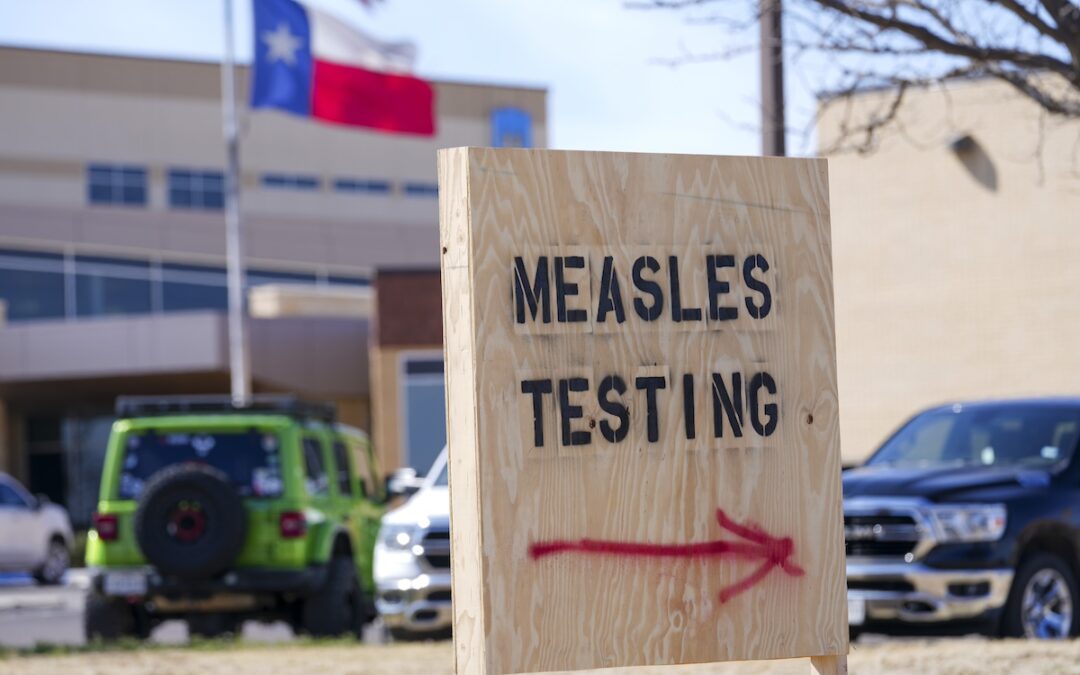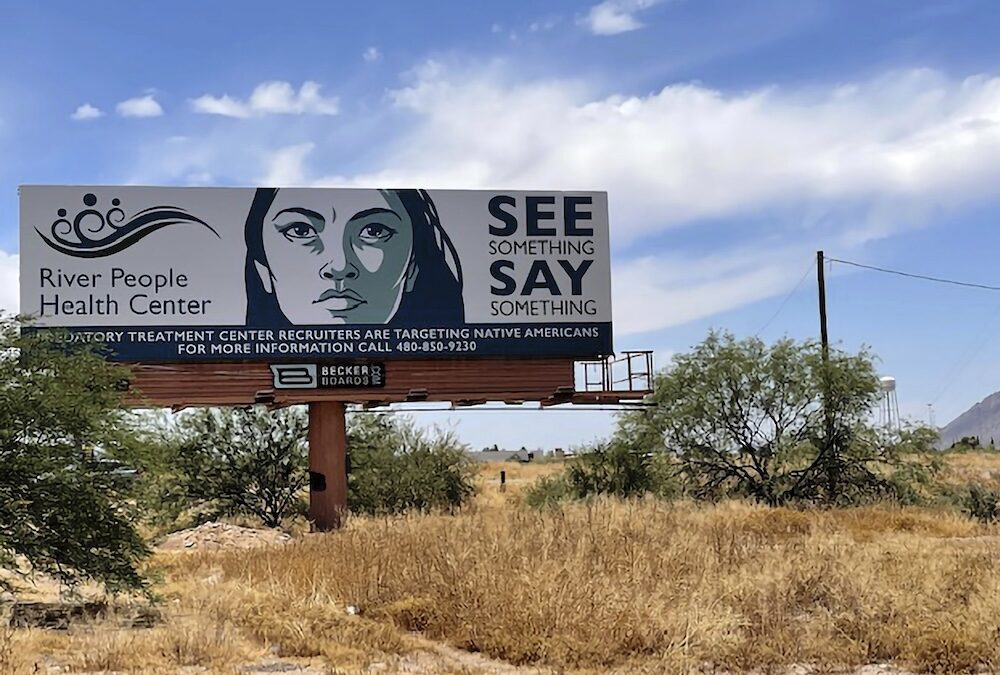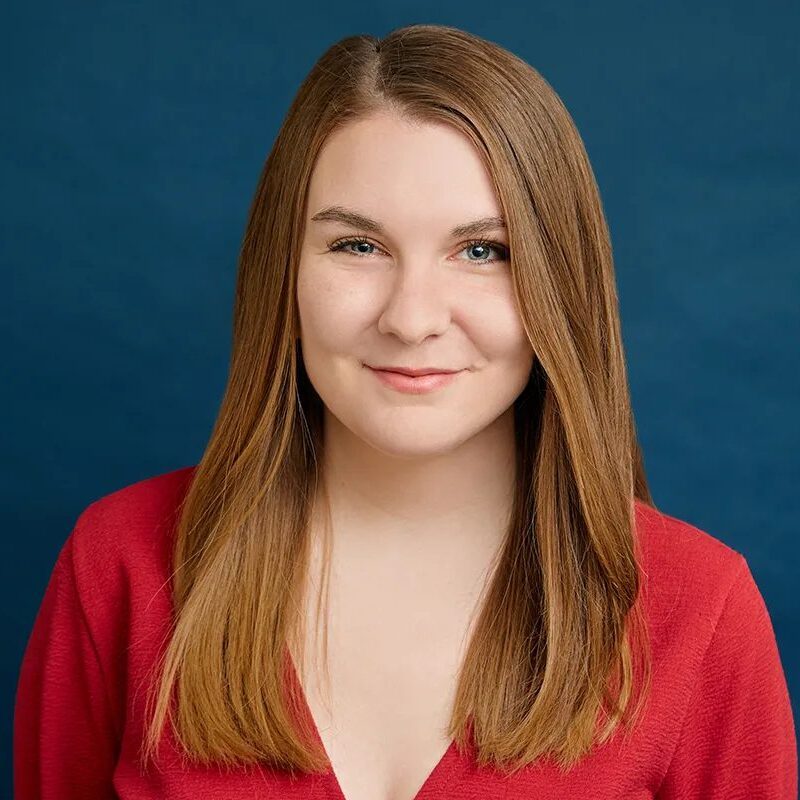
For Shauna Newman and other parents of disabled children in Arizona, the permanent expansion of a pandemic-era paid parental caregiving program has provided relief—both financially and emotionally. (Photograph courtesy of Shauna Newman)
For Shauna Newman and other parents of disabled children in Arizona, the permanent expansion of a pandemic-era paid parental caregiving program has provided relief—both financially and emotionally.
Shauna Newman’s 15 year-old son, Christian, was born weighing nine pounds and was a healthy baby boy.
But at just 11 months old, he fell into a pool and suffered an anoxic brain injury that radically altered the course of his life—leaving him non-verbal and non-ambulatory, meaning that he spends most of his time in a wheelchair.
“He basically has what would be kind of an equivalent to severe cerebral palsy,” Newman, who lives in Tucson, said.
For most of Christian’s life, Newman has served as his primary caregiver while trying to earn income through non-traditional work. She found herself “suddenly single” following a divorce in 2017, which only added to the stress of financially supporting a family—including other young children—while ensuring Christian’s needs were met.
“Prior to COVID, working from home was a luxury,” she said. “I was looking for work-from-home jobs, doing online jobs, doing direct sales—doing whatever I could at the time to be able to stay home and be available without having to bring in caregivers or anything like that. That was pretty much the goal.”
Pandemic enabled temporary paid parental caregiving in Arizona
Newman has since remarried, but her experience as a single parent trying to balance full-time caregiving for a disabled child while making ends meet financially pushed her to advocate for other families in similar situations. When she learned about paid parental caregiving programs in other states, she said she began to dream of a similar program for families in Arizona.
Through these state-backed programs, Newman learned, parents in Colorado and California were being compensated as full-time caregivers for their children—even completing training as certified nursing assistants (CNAs).
“It’s an actual job. You are just the nurse. And I thought, what an amazing program it would be for the families of Arizona everywhere because it financially empowers a home, it provides nursing, it provides care for these children, and their parents already know them. They’re already skilled. It seemed like a win-win to me,” she said.
“There was a lot of resistance. I was told, ‘Parents shouldn’t be paid to take care of their own kids. You’ll never get this changed,’” she said.
When the pandemic struck, Newman and other families of disabled children saw their first glimmer of hope. Arizona implemented a temporary paid parental caregiving program through the Arizona Health Care Cost Containment System (AHCCCS), the state’s Medicaid agency. The program granted short-term funding to pay parental caregivers who provide full-time specialized care to physically and developmentally disabled children under 18.
The benefits of this temporary program were multifaceted for Newman and other parents who enrolled. In addition to alleviating financial and emotional stress for families whose children needed full-time care, the ability of parents to step in as employed caregivers helped address a Direct Care Worker (DCW) shortage in the state.

(Photograph courtesy of Shauna Newman)
Expanded program ‘eliminates worry’ for families of disabled children
Following the success of temporary funding, parents like Newman banded together to advocate for making it permanent, contacting lawmakers and circulating petitions to solidify the temporary AHCCCS program. In 2021, with funding from President Joe Biden’s American Rescue Plan Act (ARPA), the program was extended into 2024.
And earlier this year, program permanency became a reality.
Parental advocacy from organizations like the Raising Voices Coalition pushed the AHCCCS to submit a Paid Parental Caregiver proposal to the federal government that would allow parents to be compensated indefinitely for caregiving without strict limits on working hours. The Centers for Medicare and Medicaid Services (CMS) approved that proposal in February. Arizona Gov. Katie Hobbs publicly announced the expanded program in a press conference.
Under the expanded caregiving program, about 3,600 profoundly disabled children in Arizona and their families are eligible, including Newman and her son. Parental caregivers, who are compensated the same as ordinary full-time employees, must receive standard caregiving training through an agency to qualify for state funding. This route provides another benefit, Newman says, as those parental caregivers are then certified to pursue further work in the broader caregiving field.
“You could do your hours for your child in the morning, and then if you have a spouse that stays with your child during another time, you can pick up hours later on or when that child goes to school,” she said.
For many parents of disabled children in Arizona, the policy shift has been emotional.
“I think the biggest thought that comes to my head is definitely a relief, just the word relief,” Newman said. “Our children have a limited lifespan and we’ll probably outlive them. And so when you’re thinking about how many years you have with your child and how many years you have to worry about their care and making ends meet, it just takes that off the table. It eliminates that worry.”
Republican threats to Medicaid endanger children’s health care programs
There’s still work to be done for Arizona’s disabled children and their families, Newman said. Disabled children must be assessed by workers from the Department of Developmental Disabilities (DDD) to ensure they qualify for each hour of paid care, and it’s not always straightforward.
“My son, like I said, is ‘severe and profound.’ So there’s not really a question of whether he needs 24-hour care. I don’t have to fight for hours, knock on wood, because it’s very obvious,” Newman explained.
But for families with children whose disabilities might be less severe or outwardly visible, she said, there’s still some confusion about whether their children qualify as the permanent program expands. This lack of clarity is compounded by the fact that DDD workers aren’t directly involved in policy-making, which presents the risk of families receiving false or confusing information while being assessed for eligibility.
“There isn’t a continuity in policy in education amongst these workers. And so I think that the biggest thing is getting everybody on the same page with what’s actually going on with policy and what the assessment is and what your rights really are,” Newman said.
Beyond the paid parental caregiving program, Arizona has made strides in other funding for children’s health care. In February, the Biden administration approved expansion of KidsCare, Arizona’s Medicaid program for children. Under the expanded income limits, approximately 10,000 more children became eligible for the program.
But health policy experts worry that a second term for former president Donald Trump could mean cuts to Medicare, Medicaid, and other health care programs like those expanded in Arizona.
During his first term, Trump supported legislation to repeal the Affordable Care Act (ACA), which would have made major cuts to Medicaid funding if passed. The former president has doubled down on his desire to replace the ACA if elected this fall.
And Project 2025, a far-right “blueprint” outlining policy goals for a second Trump term, includes what some analysts have called “draconian” changes to Medicaid—like caps on federal funding, cuts to protections for beneficiaries, and even the inclusion of additional “red tape” to make Medicaid enrollment or renewal more challenging for American families.
Newman said maintaining these programs is critical for families like hers.
“It’s kind of full circle because when I was a single mom for my oldest son, we used KidsCare. So I think it would be a huge detriment if they were cut,” she said. “And I think it says something, what’s that quote? ‘How you see a society or culture is how they take care of their least fortunate and their most vulnerable,’ and that would be children and kids like my son.”

Arizona officials confirm measles outbreak in Navajo County
Health officials in Arizona say there are four linked measles cases in Navajo County, marking the state's first outbreak this year. The U.S. logged...

20 people, health care business and church charged in sober living scheme in Arizona
Twenty people, a mental health business and a church were charged in an indictment that alleged Arizona’s Medicaid program was defrauded $60 million...

As measles spreads, vaccination rates continue to decline
Gila, Navajo, Mohave, and Yavapai counties in Arizona have lower vaccination rates than Gaines County in Texas, which has been experiencing a...

Is Arizona’s lack of measles cases a fluke, given its low vaccination rate?
Arizona is among many states with a kindergarten MMR (measles, mumps, and rubella) vaccination rate below 90% in 2024. WASHINGTON – Measles –...





